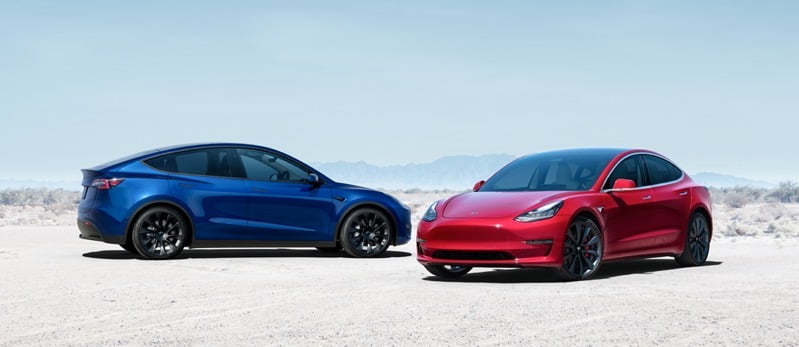
New NHTSA Fuel Economy Fines Favor Tesla, Will Cost Other Automakers Hundreds of Millions

The U.S. National Highway Traffic Safety Administration (NHTSA) on Sunday announced that a previously delayed hike in penalties for 2019 and later model year vehicles that do not meet fuel efficiency requirements will soon take effect — reports Reuters.
The news comes a little over two months after the Second Circuit U.S. Court of Appeals denied Tesla’s requests for higher penalties on automakers that fail to meet fuel economy standards in January.
Tesla has been pressing for the high emissions penalties originally put in place by the Obama administration to be reinstated since March 2021, with appeals to both U.S. President Joe Biden and a federal appeals court.
The move is a clear win for Tesla, which exclusively sells electric vehicles (EVs), but could cost other automakers hundreds of millions of dollars (or more).
During the final days of his administration, former U.S. President Donald Trump delayed a 2016 regulation that more than doubled fines levied on automakers against vehicles that fail to meet Corporate Average Fuel Economy (CAFE) requirements starting in the 2019 model year.
The NHTSA has not collected penalties from automakers for 2019 to 2021 model year vehicles while the issue was in limbo. The agency’s final ruling not only reinstates the higher penalties originally proposed but also expands them to cover 2022 model year vehicles.
For 2019 to 2021 model year vehicles, the revised fine is $14 USD, up from $5.50, for every 0.1 mile per gallon that the vehicles fall short of the mandated fuel-economy standards, multiplied by the number of noncomplying vehicles sold. For the 2022 model year, the fine has been set at $15.
The final rule will take effect 60 days after it is published. It was signed on Thursday by NHTSA’s top official, Steven Cliff, ahead of its formal publication on Sunday.
The NHTSA has said the decision “increases the accountability of manufacturers for violating the nation’s fuel economy standards” and the penalty increase “incentivizes manufacturers to make fuel economy improvements.”
Back in 2016, automakers protested the increased penalties and warned they could raise industry costs by at least $1 billion per year. Stellantis (formerly Chrysler), for example, is expected to owe $572 million by the company’s prior estimates, while the value of compliance credits sold by Tesla will soar.
Automakers whose vehicles achieve exceed fuel economy standards can sell credits to automakers that do not meet CAFE rules.
On Sunday, Stellantis said it would “like to work with the administration and Congress to allow the agencies to use the proceeds from penalties to bolster investments in the technologies and infrastructure required to accelerate a robust U.S. market for EVs.”
According to the NHTSA’s estimates, automakers would owe $294 million for the 2019 model year under the new rate, up from $115.4 million at the previous rate. The federal agency went on to say that automakers that made plans for 2019 through 2021 “thinking that penalties would not increase did so at their own risk.”
The head of a trade group representing nearly all major automakers except Tesla said on Sunday that it would be a “better outcome” if the proceeds from the penalties “were invested in electric vehicles, batteries and charging infrastructure instead of disappearing into the general fund of the Treasury.”
Back in August of last year, the NHTSA proposed bumping CAFE requirements by 8% annually for 2024 through 2026, reversing a Trump-era regulation that rolled back higher requirements starting in the 2021 model year. The regulator is expected to issue its final CAFE rules applicable through 2026 this week.

